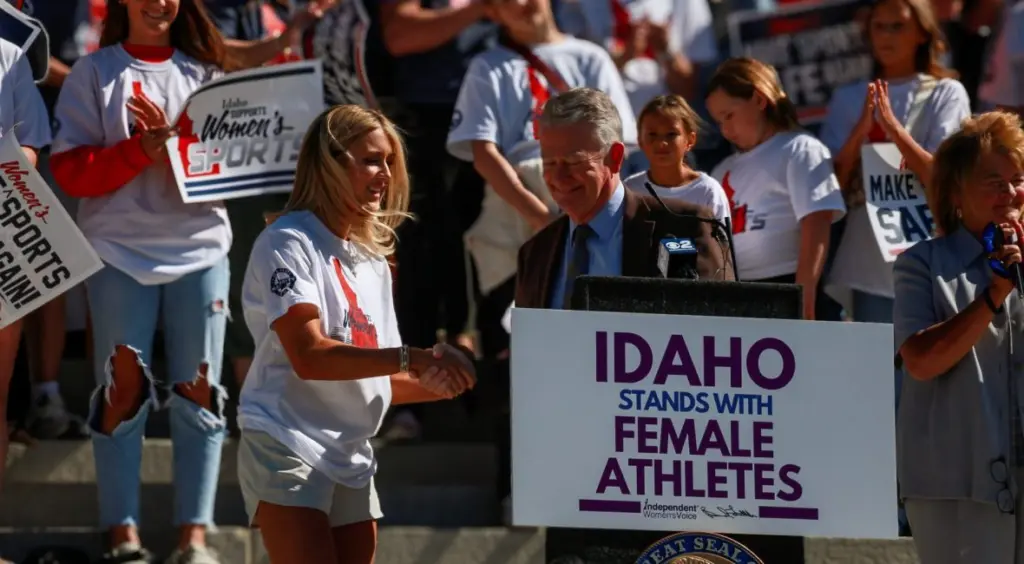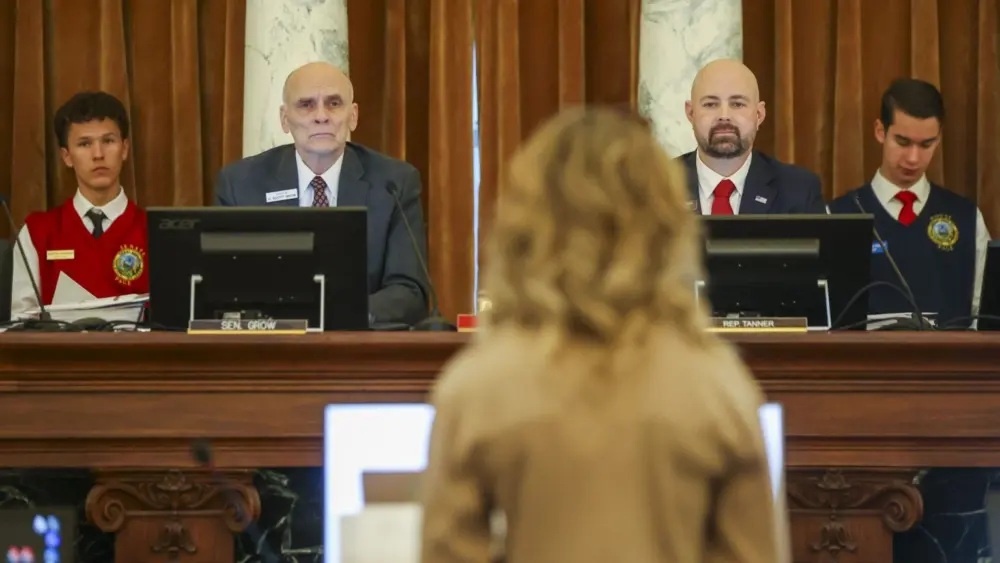This story was originally posted on IdahoEdNews.org.
BOISE, ID – With a United States Supreme Court hearing expected later this fall, Idaho politicians and conservative groups are rallying behind the state’s transgender athletics ban.
They have filed briefs urging the nation’s highest court to uphold Idaho’s 2020 law, which forbids transgender athletes from competing in women’s and girls’ sports.
Idaho was the first state to pass a transgender athletics ban, and since then, 26 other states have followed suit. But the issue has been mired in court for more than five years, and the U.S. Court of Appeals for the Ninth Circuit has blocked Idaho’s law from going into effect.
The U.S. Supreme Court in July agreed to hear arguments on the Idaho law, and a similar West Virginia state law. In the past week, the Supreme Court has received more than 40 briefs on the matter — from political, athletic, academic and religious quarters. Nearly all of these briefs urge the court to uphold the Idaho and West Virginia laws.
Here’s a cross-section from the documents — known as “amicus curaie” or “friend of the court” briefs — including several with Idaho ties.
Rep. Barbara Ehardt, the sponsor of Idaho’s 2020 law, recounted her life story. Ehardt, a former college basketball player and coach, has often said that competitive sports changed her life.
In her brief, the Idaho Falls Republican argued for protecting female athletes, and their opportunities to compete.
“In limited areas such as sports, women and men are physically different from each other in ways that recommend separate opportunities,” Ehardt wrote.
Her brief is co-signed by 206 female state legislators from across the country, including Sens. Christy Zito, R-Mountain Home, and Glenneda Zuiderveld, R-Twin Falls; and 38 organizations, including the Idaho Family Policy Center, a conservative lobbying group.
Idaho Senate President Pro Tem Kelly Anthon and House Speaker Mike Moyle said states should be able to set transgender athletics policy — without fear of losing federal education funds.
“Especially in divisive controversies like the debate over women’s and girls’ sports, federalism lets each state decide how best to proceed without undue federal pressure,” said Anthon, R-Rupert, and Moyle, R-Star.
Riley Gaines — a former University of Kentucky swimmer at the forefront of the transgender athletics debate — invoked a women’s volleyball controversy that placed Boise State University in the national spotlight.
Last fall, Boise State and four other schools forfeited matches against San José State University, which reported had a transgender player on its roster.
Gaines said her co-signers, 32 current and former college athletes, “have been harmed by the rules of college sports governing bodies that have authorized and continue to authorize men to take women’s places and share women’s locker rooms, showers and other private spaces in college sports.”
The co-signers include Katelyn Van Kirk and Kiersten Van Kirk, two former student-athletes at Boise State, who joined in an unsuccessful lawsuit challenging the San José State player’s eligibility.
Forty-eight members of Congress said the transgender athletics issue threatens to rewrite Title IX.
The landmark 1972 federal law bans discrimination in schools — and allows the feds to withhold education funding. But this law clearly bans discrimination based on sex, not gender identity. “Title IX’s guarantee of fairness in athletics, privacy in facilities, and equal treatment in education rests on the stable and easily understood meaning of ‘sex.’”
Idaho’s Republican delegation — Sens. Mike Crapo and Jim Risch and Reps. Mike Simpson and Russ Fulcher — are among the co-signers.
Advancing American Freedom, a Washington, D.C., group, argued that the “chemical or surgical manipulation of children” is now used as justification to allow transgender athletes to play in women’s or girls’ sports.
“That some boys have been given puberty blockers is no excuse for allowing those children to participate in female sports,” the group argued. “That one child is being harmed is no reason to harm others. States must be allowed to protect children from abuse.”
The Idaho Freedom Foundation, a hardline lobbying group, is among the co-signers.
The Church of Jesus Christ of Latter-Day Saints and other religious groups said the transgender equality movement poses a threat to freedom of faith — and religions that consider sex and gender to be indivisible. “Those who hold those beliefs would be considered ‘outside the mainstream’ or simply bigots.”
The Trump administration also weighed in, noting that President Donald Trump signed an executive order banning transgender athletes from playing in women’s and girls’ sports.
“The laws of West Virginia and Idaho place trans-identifying athletes on sports teams on the same valid, biology-based terms as everyone else,” the brief read. “That is the definition of equal treatment. It is not gender-identity discrimination at all, much less sex discrimination.”
It’s unclear when the Supreme Court will hear arguments on the case. It’s also unclear whether Idaho’s portion of the case will remain active.
Earlier this month, a Boise State transgender athlete asked the Supreme Court to drop the matter, saying she no longer plans to compete on women’s teams at the university. The state’s attorneys oppose Lindsay Hecox’s motion. Their formal arguments are due Friday.





